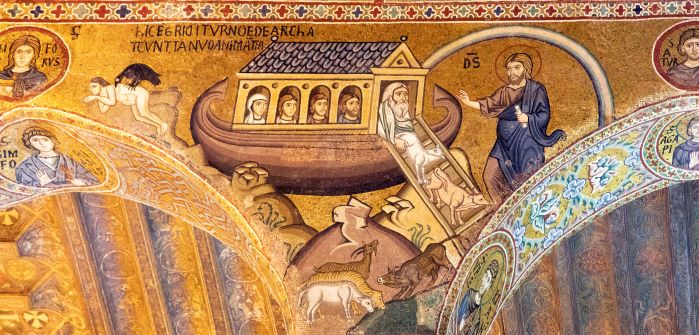
Disregard ‘Gotcha’ Efforts To Overturn
Your Faith in the God of Israel and Christianity
by Mark Mountjoy
Introduction
AS WE CONTEMPLATE THE VASTNESS and mysteries of space, we are confronted with questions that transcend our understanding of the universe. From the boundless expanse of the cosmos to the infinitesimal realms of subatomic particles, space presents us with a profound sense of awe and wonder. Yet, amidst this grandeur, we are drawn to consider the role of an Almighty Creator who not only formed the universe from nothingness but also holds the power to shape and transform space itself. In this essay, we will explore the concept of space in the context of divine creation and the limitless potential of an omnipotent God to manipulate the fabric of reality, from the smallest subatomic scales to the vast expanses of cosmic realms. Through this exploration, we seek to delve into the profound implications of divine omnipotence in the realm of space, inviting contemplation on the nature of existence and the boundless capabilities of the divine.
Individuals emerging from cults, sects, and other highly controlling groups often experience a sense of liberation when they embrace personal responsibility for their own research and critical thinking. However, in their quest for independence, some individuals swing too far in the opposite direction, rejecting not only the restrictive doctrines of their former groups but also fundamental beliefs in the Bible, miracles, and the supernatural. They reevaluate the words of God and begin to doubt the authenticity of the Scriptures, ultimately losing faith in God altogether.
Various grievances and disappointments contribute to their skepticism towards the Bible. Having witnessed misuse of Bible prophecy to predict false dates and experienced pressure to devote their lives solely to imminent apocalyptic scenarios, they begin to view the Bible with suspicion. They recall being discouraged from pursuing education, relationships, and careers due to predictions of an impending end of the world. These experiences instill a newfound skepticism, causing them to regard biblical stories as mere folklore rather than divine truth.
A favorite argument among skeptics and atheists revolves around the account of Noah and the Deluge, questioning the feasibility of fitting pairs of every animal species onto the ark and ensuring its safety during a forty-day deluge. They argue that the dimensions of the ark described in the Bible couldn't possibly accommodate large animals like elephants, giraffes, horses, cows, moose, polar bears, and others. However, they overlook a crucial aspect: the omnipotence of God. With God, all things are possible, including fitting numerous creatures into a finite space.
We will argue that just as God can bring an infinite supply of things from a finite space, He can also reverse this process, allowing large entities to fit into small spaces. Additionally, modern scientific theories suggest that the universe itself originated from a point smaller than the head of a pin, further supporting the notion that size limitations are not insurmountable for God.
Furthermore, we will explore the concept of the Holy City, a finite space yet capable of accommodating an endless influx of saved humanity. By establishing these biblical truths and aligning them with scientific claims, we will assert that there is no reason to doubt the possibility of the entire animal kingdom fitting onto the ark if it was God's will.
Something From Nothing:
Elijah and the Widow at Zarephath
7 Some time later the brook dried up because there had been no rain in the land. 8 Then the word of the Lord came to him: 9 “Go at once to Zarephath in the region of Sidon and stay there. I have directed a widow there to supply you with food.” 10 So he went to Zarephath. When he came to the town gate, a widow was there gathering sticks. He called to her and asked, “Would you bring me a little water in a jar so I may have a drink?” 11 As she was going to get it, he called, “And bring me, please, a piece of bread.”
12 “As surely as the Lord your God lives,” she replied, “I don’t have any bread—only a handful of flour in a jar and a little olive oil in a jug. I am gathering a few sticks to take home and make a meal for myself and my son, that we may eat it—and die.”
13 Elijah said to her, “Don’t be afraid. Go home and do as you have said. But first make a small loaf of bread for me from what you have and bring it to me, and then make something for yourself and your son. 14 For this is what the Lord, the God of Israel, says: ‘The jar of flour will not be used up and the jug of oil will not run dry until the day the Lord sends rain on the land.’”
15 She went away and did as Elijah had told her. So there was food every day for Elijah and for the woman and her family. 16 For the jar of flour was not used up and the jug of oil did not run dry, in keeping with the word of the Lord spoken by Elijah.
